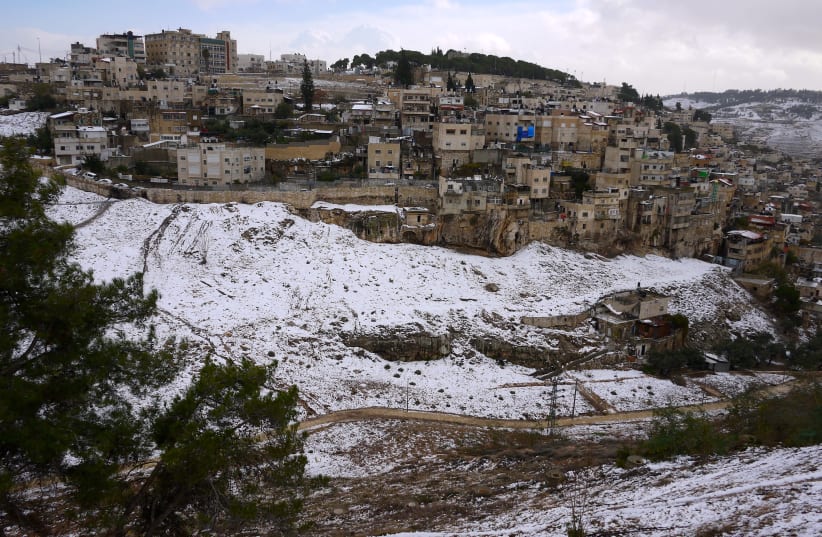“I am sure it will give the three neighborhoods outside the fence to the PA to become the capital of Palestine,” he concluded. Asked what he thought the reaction in these neighborhoods would be, Odeh replied, “They will run away from there to remain on the Israeli side at any cost.”
A lawyer in his late 30s, Odeh has lived all his life in a united Jerusalem under Israeli sovereignty. He declares that his identity is Palestinian and that he is a Moslem (although very moderate, he adds) but nevertheless, he doesn’t want to live under a PA regime. Most of his friends, about the same age and all university graduates (mostly from the Hebrew University) hold, like him, an Israeli passport, which, in their eyes, he adds, is their most precious asset.
The Israeli citizenship he and his friends value so much is not something unusual – according to the Central Bureau of Statistics, there has been an increase of 12% in the requests for it among Arab residents in Jerusalem. Odeh is sure that since the Trump plan was released, the increase will be much steeper.
“We can see that also by the increase in rent on this side of the fence. It means that the move to leave Kafr Aqab and the other neighborhoods behind the fence has already started, and it will only accelerate.”
Life during the last year has been something of a roller coaster for the 380,000 Arab residents of the city. On one hand, the area lacks infrastructure: sidewalks, street lighting, classrooms (resulting in thousands of children moving to private schools under the direction of Hamas and other Islamist streams), commercial centers – and above all construction permits, leading to demolition of illegal structures. The lack of infrastructure and sanitation recently contributed to the death of seven-year-old Qusai Abu Ramila in Sharafat.
On the other hand, since June 2018, Jerusalem Affairs and Heritage Minister Ze’ev Elkin, has obtained a special NIS 2.5 billion budget to improve conditions. Extensive roadwork and renovations are underway and funds have been allocated for high schools that move to the Israeli matriculation program. Residents see what can be achieved once there is a decision to improve.
THE CITY council decision to name four Silwan streets after four rabbis caused some renewed friction, but due to the efforts of Laura Wharton (Meretz), a city council member and member of Mayor Moshe Lion’s coalition, the decision was canceled earlier this week, with Lion’s approval.
For more than half a year, there was tension inside Isawiya, where security forces arrested, including in night actions, more than 700 persons, including youths and even some children. Recently, Lion decided to intervene and invited members of the neighborhood parents’ association to his office – for the first time. Lion claimed that he couldn’t do much as long as the police were present, but now he has initiated a new dialogue with the residents, aimed to alleviate local problems linked to municipal services – education, sanitation, psychologists for children and youth, etc.
But one major issue that remains is the occasional resurgence of terror attacks. For Najeeb, a resident of Jebl Mukaber, these are isolated cases of young adults.
“Nobody sends them. They act on their own. The majority of the residents here want to live in peace. We just want our rights. We are fed up with demolition of our houses and the living conditions. We pay our taxes even more than Jewish residents, yet we don’t get what we deserve,” he said. “These are young people. They are confused. Maybe they heard someone saying something about Jihad in the mosque, but you can see that it was only two cases and we are back to normal.”
“We, the Arab residents of Jerusalem, are orphans,” concludes Odeh. “The PA doesn’t care about us. Hamas in Gaza is an example of what we don’t want for us, not to speak of the Arab countries who have always betrayed us. We can rely only on ourselves and if Israeli citizenship is better for us, that’s what we want to get.”
